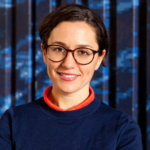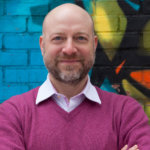What makes your nonprofit unique? An interview with Doctors Without Borders
Nonprofit organizations of all kinds are playing a critical role in responding to the devastating Ebola outbreak in West Africa. Doctors Without Borders, also known by their French name Medecins Sans Frontieres, is one of the many international groups sending brave health workers overseas to provide care to those affected, and helping to prevent further spread of the virus.
With the world turning its attention to West Africa, there’s been a tremendous amount of media coverage featuring Doctors Without Borders and the impressive work they’re doing to help fight Ebola. One of the pieces that stood out was this NPR feature “Doctors Without Borders Changed The Way We Heal The World” which reports on the unique way they’re able to mobilize aid workers and quickly respond to disaster.
We spoke to Thomas Kurmann, Director of Development at Doctors Without Borders, to learn more about what makes their approach unique, what resonates with donors, and how they manage to keep their staff “on message.”
Big Duck: What makes Doctors Without Borders different from other humanitarian aid organizations?
Thomas Kurmann, Doctors Without Borders: It is probably the mix of different ingredients that makes us (and other actors) unique. Doctors Without Borders has grown its expertise in the field of humanitarian and medical assistance over more than 40 years. Our mission is driven by the humanitarian principles of independence, impartiality and neutrality. The decision to intervene in a context or not, is driven exclusively by the extent of suffering and medical assistance needed by a certain population. We are action oriented on the one hand and have the flexibility and capacity to intervene quickly in whatever emergency situation our medical assistance is needed most. This is made possible by our financial independence, which is grounded in the fact that, globally speaking, 90 percent of our funds are coming from private donors. No other international NGO has such an extensive proportion of private support. And on the other hand, we speak out publicly on and denounce situations, whenever we think that we can improve the access to medical assistance through our public communication and advocacy. We intervene in crisis situations, where other actors do not have the capacity or capability to act.
Big Duck: What perceptions do you want your donors to have of you?
Thomas: We know that our donors perceive us as an emergency medical organization first and foremost. It is important that donors understand the principles that drive our interventions and decisions. We have strong accountability systems in place, inform transparently on crisis situations we intervene on, but also on the challenges we are facing. Having our principles and values communicated to our supporters is crucial in terms of strengthening our identity in the perception of our supporters. We want them to partner with us and understand why certain (difficult) choices sometimes have to be made, such as our departure from Somalia, for example.
Big Duck: What motivates your donors to give?
Thomas: It is the character of an emergency organization that drives people mainly to donate to Doctors Without Borders. The fact that we move quickly when an emergency happens and get things done. It is mainly the proximity to the field, the patient stories, expressed through the lens of our aid workers, that are most inspiring to our donors. But also our honesty and transparency, when it comes to communicating challenging situations. We stick to our values and principles in a consistent way.
Big Duck: Is it important for Doctors Without Borders to communicate consistently to your donors? What advice do you have for other nonprofits that struggle with communicating with a unified voice?
Thomas, Doctors without Borders: Doctors Without Borders is a movement of independent entities around the world, which is sometimes challenging when it comes to speaking out with one voice. The driver to remain consistent is grounded in the fact that we speak out only on what we witness directly ourselves in the field and is considered relevant. We remain focused on the suffering of our patients and their stories. Spokespeople of the organization are mainly aid workers, who can speak from their own experiences in the field. This gives credibility to the messaging and inspires trust within the audience. We do have a training procedure in place. This allows aid workers to feel comfortable when speaking in the public domain. As an advice, as simple as it might be, I could only say to ground the messaging in the core values of an organization, to be truthful to its own mission in any single step of a communication chain. It is crucial to have clear guidelines in place that describe the roles, responsibilities and relevance of those people who speak on behalf of the organization.



